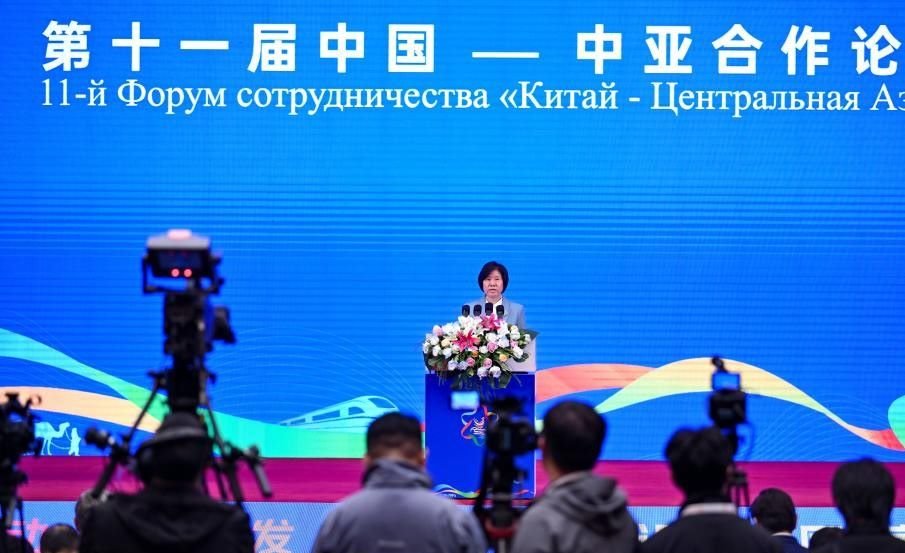YINCHUAN, (TDI): The 11th China-Central Asia Cooperation Forum concluded on Sunday in Yinchuan, the capital of northwest China’s Ningxia Hui Autonomous Region.
During the forum, China and Central Asian countries signed 35 agreements valued at a total of 11.2 billion yuan (approximately $1.57 billion), exploring new areas for collaboration in trade, agriculture, and sister city partnerships.
The forum introduced the Yinchuan Initiative, which calls for enhanced exchanges and cooperation in green development, smart agriculture, e-commerce, and people-to-people connections.
Over the past decade, Central Asian countries including Kazakhstan, Kyrgyzstan, Tajikistan, Turkmenistan, and Uzbekistan have actively participated in the Belt and Road Initiative, transforming the region into a model zone for such cooperation.
Experts and scholars from Central Asian nations praised the forum for promoting sustained and expanded collaboration in science and technology.
The event drew over 300 representatives from China and abroad and featured an opening ceremony along with four parallel sub-forums.
These sessions focused on green industrial development, modern agriculture, technological innovation, sister city cooperation, cultural exchange, and regional collaboration.
Also Read: Central Asia, China Aim to Boost Trade
Mammetberdi Elyasov, director of the Medical and Biological Department at the Academy of Sciences of Turkmenistan, emphasized that the forum aims to strengthen cooperation in digital technology between China and Central Asian countries.
Gulnar Shaimergenova, director of Kazakhstan’s China Studies Center, noted significant advancements in exchange programs for researchers and students between Kazakhstan and China in 2023.
She highlighted that China’s scholarships for Central Asian students bolster scientific ties and enhance the professional skills of future regional leaders.
Also Read: Uzbekistan Tops Central Asia Military Rankings
Rashid Yusupov, director of the Center for Belt and Road Studies at Kyrgyz State University, mentioned that the “Luban Workshops” provide essential technical assistance to participating countries.
He stated that China’s cooperation with Central Asian nations fosters mutual development and strengthens ties in science, education, culture, and socio-economic fields, which are vital for the region’s stability, growth, and prosperity.
The forum was co-hosted by the Good-Neighborliness, Friendship and Cooperation Commission of the Shanghai Cooperation Organization and the People’s Government of the Ningxia Hui Autonomous Region.



